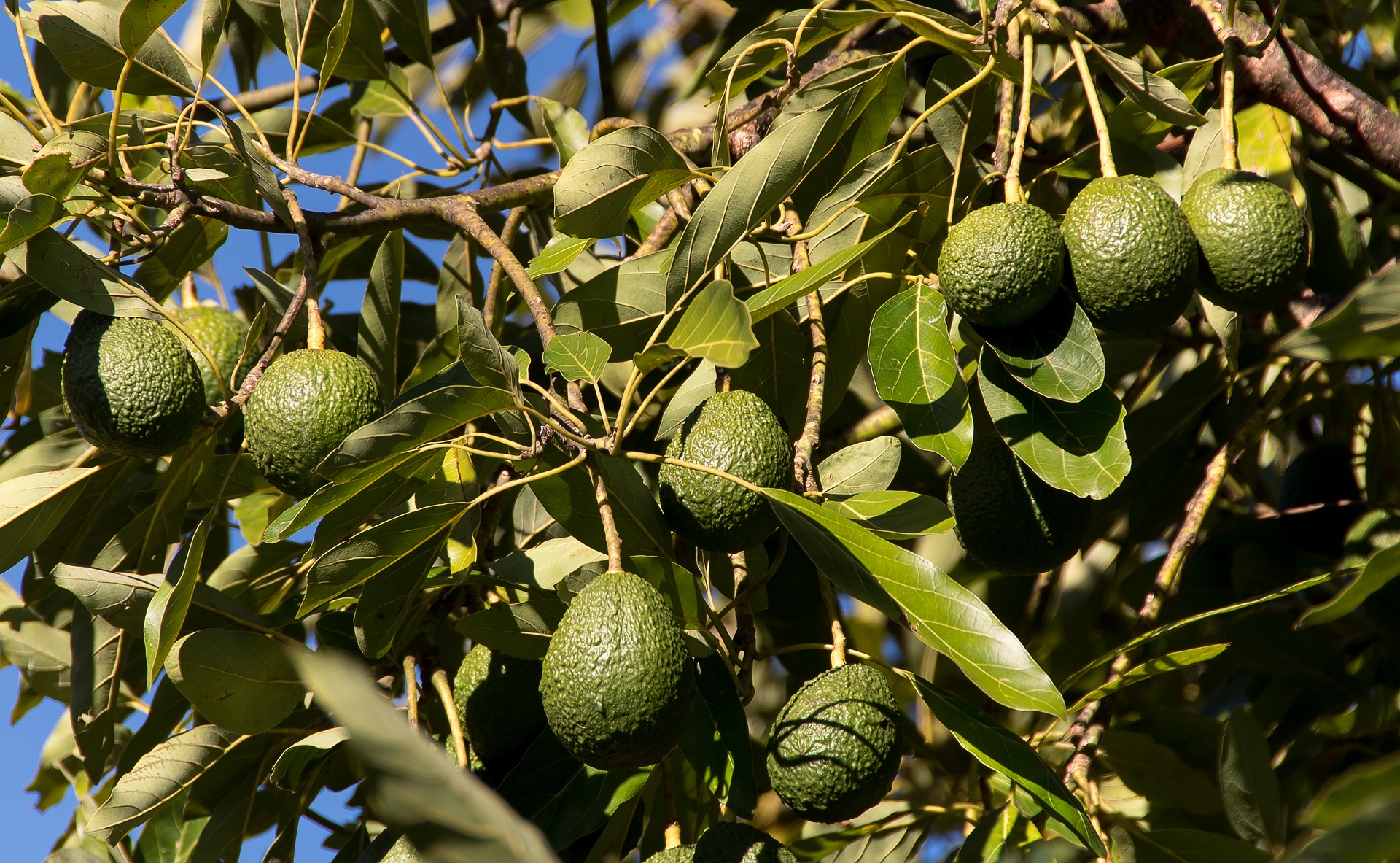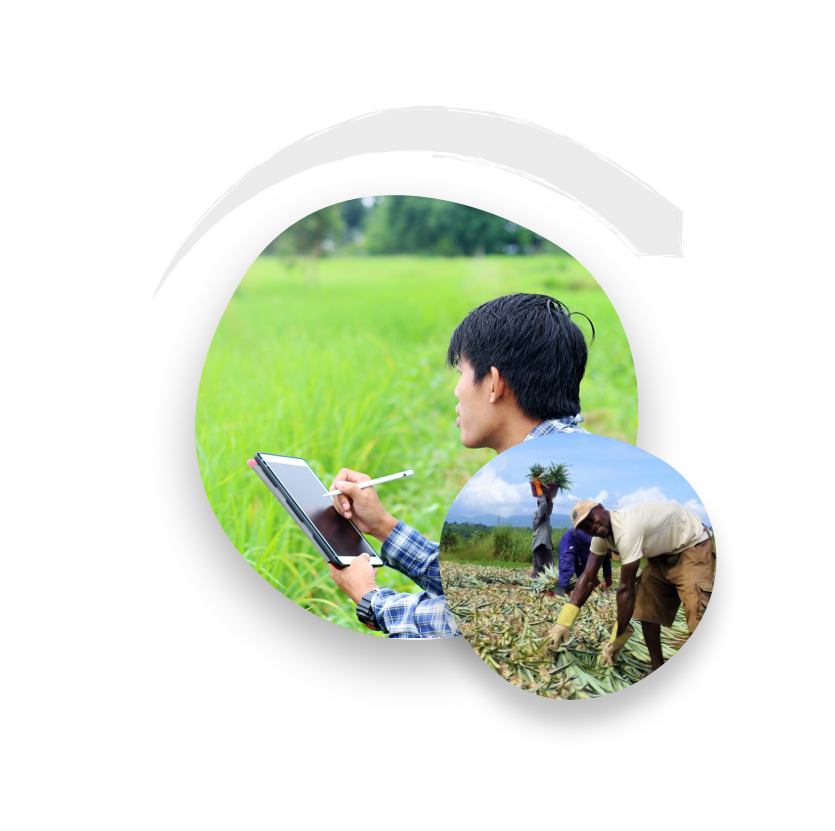A collaborative network within the South African avocado supply chain
No fruit is becoming more popular as quickly as the avocado. In recent years there is an increasing consumer demand for healthy products, the avocado fits in perfectly with this trend. In Europe alone, about 500 million kilograms of avocado was being consumed in 2020, one kilogram per European per year. In order to meet this increasing demand for this fresh ‘green gold’ Albert Heijn worked, together with their supplier Westfalia and FairMatch Support on the optimalisation, efficiency and sustainability of the avocado value chain in South Africa. The 4-years support programme resulted in a collaborative network of supply chain partners and long lasting market access for smallholder farmers.

I got to know FairMatch Support as an organisation with great expertise. The professionals of FairMatch Support have knowledge of local circumstances and they recognise where the challenges and opportunities are. They supported us in developing and implementing a plan for the long term. The organisation is down to earth with a no nonsense and pragmatic mentality.
Henri Zondag, director Sustainable Business Development at Ahold Delhaize
The AH Foundation was founded in 2007 by Albert Heijn and works with its growers and fresh produce suppliers on sustainable and fair produced products and contribute to better living conditions for the local community. Albert Heijn wants to source high-quality products that are on the shelves for their customers every day, year round. Henri Zondag: “We think it is important to build long-lasting relationships with our suppliers and feel it as our responsibility to work with our supplier on the improvement of the product and the volume. This is why AH Foundation invest in all kinds of local projects such as education, health, housing and optimalisation of the value chains.
For the growing demand of avocadoes we worked with our supplier Westfalia together with FairMatch Support on the optimalisation and sustainability of the supply chain in South Africa. As a retailer we needed to work with expertise on building sustainable supply chains. This helps us to know that we are working on the right aspects and gives both internal as external credibility”.
Open & supporting environment for smallholder farmers to access markets
Westfalia Fruit was established 70 years ago, in Tzaneen. Now the headquarters are in Johannesburg. Westfalia is one of the largest avocado suppliers in the world. They grow, source and ripen, pack, process and market quality avocados, across the year and across the globe. Westfalia started with avocadoes from South Africa and has a long history of sourcing from local farmers. Donald Westcott, Commercial Manager Westfalia Marketing Africa: “If you want to source from smallholder farmers it is our responsibility to go beyond a sourcing relationship; enable them to be part of the commercial supply chain. For this programme we worked together with FairMatch Support on the development and establishment of a supply chain of smallholder avocado farmers and to create an open and supporting environment for smallholder farmers to access market”.
From fractured farmer groups to a collaborative network
As the local partner of FairMatch Support in Southern Africa, Kruger, Swart & Associates supported both smallholder farmers and the junior and middle management of a community owned farming enterprise on social and organisational levels. Westfalia was the technical partner and trained the farmers on, for example, good agricultural practices. Donald Westcott: “We did quarterly training sessions covering all aspects from the basics of production with a technical bias to packaging and the logistical network. Where required I gave technical assistance and worked on combatting disease in the orchards”. Marthane Swart: “This balance between the technical support and the social and organisational training was crucial for the programme. Often there is a training on technical support but not on organisational level or the other way around. You need a focus on both areas to ensure that the work we do leaves resilient and sustainable businesses once we exit the projects”.
After gaining an understanding of the context of the project, FairMatch Support started with the coaching and training of the smallholder farmer groups. In the beginning the groups were very fractured. Farmers belonged to different organisations, were not cooperating and saw each other as competitors. This contributed to a situation where they were selling the avocadoes at extremely low prices into unstable markets. Marthane Swart: “In order to ensure that the farmers were getting a better sense of how supply chains work and engage better with trading partners, support sessions were held to impart knowledge of the avocado supply chain, business management and on developing a business plan, financial management and certification.
During the 4 years that we worked with the farmers we saw a shift and we still see this today; they are more structured and are mutually supportive off each other. What we did was increasing already existing knowledge and creating an environment where farmers could learn from each other. This resulted in a coherent group that share peer learnings and created farmer leaders within the groups. This way ones that need a bit more support can learn from these leaders. The farmers have an increased ability to meaningful participate in the value chain”.
We really created a long-lasting collaborative network; several groups of farmers are still exporting and maintaining their certification. That is what makes FairMatch Support's work and vision so unique”.
Potential for business growth
FairMatch Support not only trained smallholder farmers but also the management of a community farm. This created capacity on two levels in the wider community, which is unique – normally development is focussed either on smallholder or large enterprise level.
While smallholder farmers work as individuals organised in a group, the community owned farm is a larger operation with various levels of management. The support to this entity started out with the training of junior and middle management to create increased understanding of the supply chain and improving and maintaining quality of their avocadoes. The training for the junior and middle management group included sessions on leadership, personal development and communication, effective teamwork and planning and the workplace structure and accountability. Marthane Swart: “In this training context, it was also important to be aware of the different responsibilities and realities on junior and middle management levels and to, while you are speaking to the same topics, stay aware of the fact that you need to tailor make your training approach to fit the level of management.
Due to these trainings, managers developed a greater understanding of the supply chain and how their actions influence the chain and the potential for business growth. Management was taking higher levels of responsibility and engaging in the management meetings in a more proactive manner in terms of development of solutions to challenges identified in production and undertaking to share this with top management. This resulted in a situation where management is working on a beyond production level; the development and wellbeing of the business instead of only focussing on volume and quality improvement. Due to this shift in focus, issues at production level were solved as well, since the manager developed an understanding on how management actions on human resource and organisational level can influence the success of production and how this can contribute to the delivery of a high-quality product – something that was not obvious to them prior to the training”.
Beyond a sourcing relationship
Marthane Swart: “If you want to source from smallholder farmers it is our responsibility to go beyond a sourcing relationship and to make sure that you leave something else than just simply money behind and this relationship was established with the avocado supply chain development programme. Often development actions are focussed on increasing quality and volume in order to supply market, and the necessary care for the human element that makes this supply chain possible, goes missing. A beyond sourcing approach recognises that if understanding and responsibility and most importantly ownership and pride of supply chains are not created with smallholder farmers and community projects, the effort to maintain the results of development will always be on an external party. Once these aspects are created through the social and organisational focus, this becomes internal to the farmers and the supply chain enabling them to independently engage and build and grow on what they have learned and most importantly adjust to change”.
Segmentation ensures more efficiency and volume
Henri Zondag: “The lessons learned were gigantic. The programme has given us many insights on how to tackle these types of projects in the future. In particular we learned from FairMatch Support to look critically at the amount of farmers to include. With the aim of connecting farmers to the export market and source avocadoes so we can meet the growing demand we started with the idea to work with as many farmers as possible. However one of the most important lessons learned is to build relationships with the most potential farmers. There must be genuine motivation among farmers to develop a long-lasting relationship with us. Segmentation ensures that you can train in a targeted manner based on the possibilities and potential of the farmers. These targeted training courses have led to a number of highly professional cooperatives that are able to combine high production with a good logistics and administrative organisation and thus make large volumes. We can work with few cooperatives and saves money and time”.
Projects
They are willing to make a true difference in sustainable business
We work worldwide with a variety of agricultural products. Our programs are always conducted in cooperation with our global network of like minded local business development organisations.


